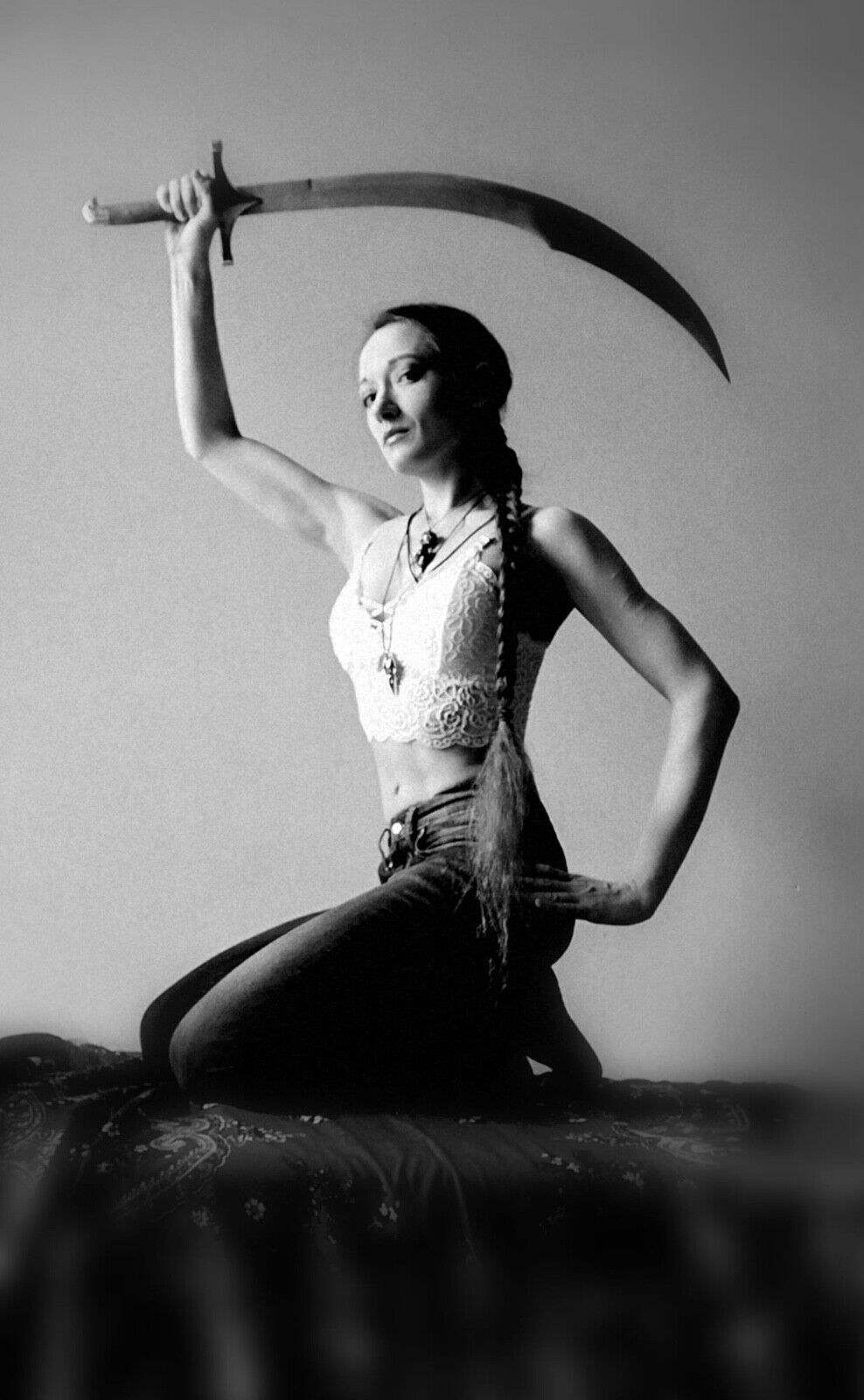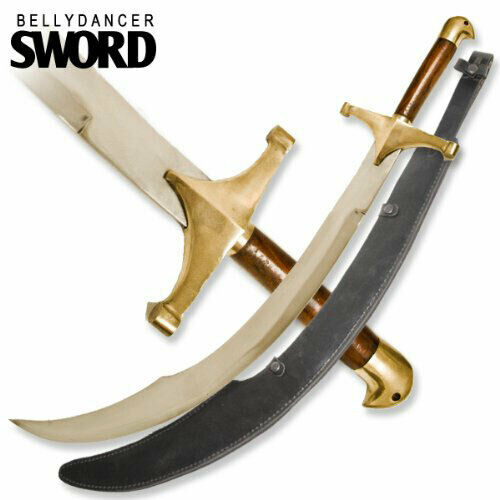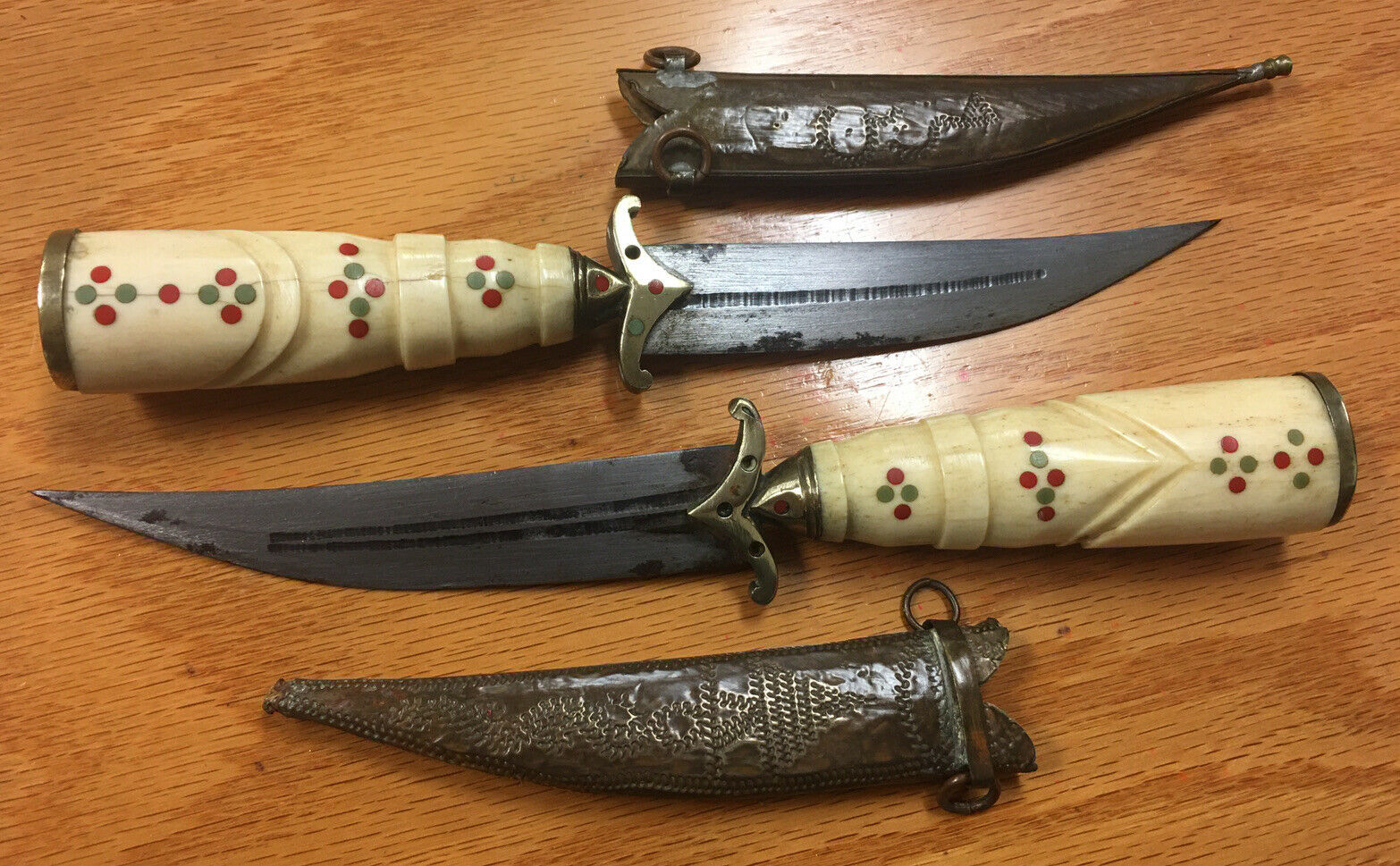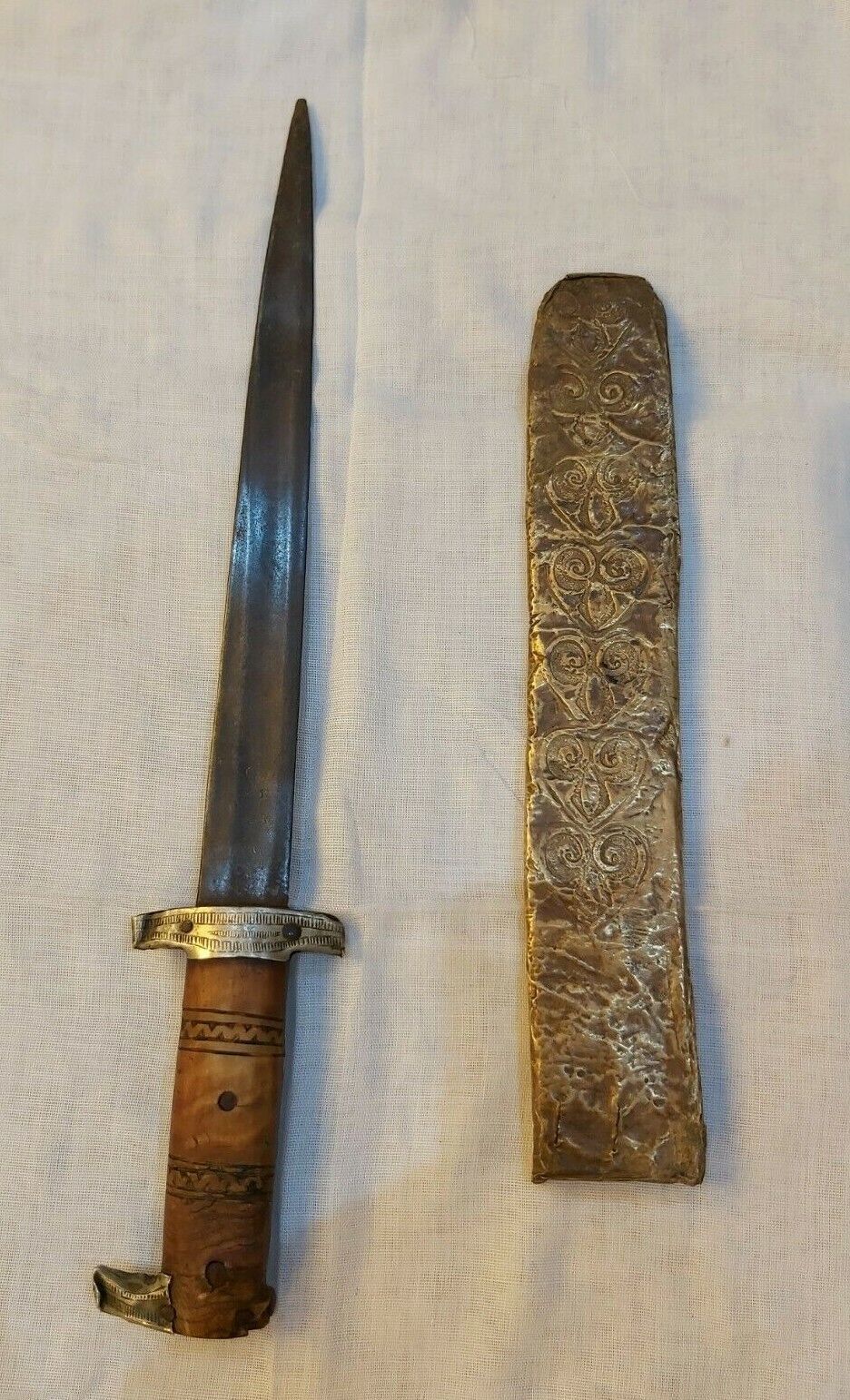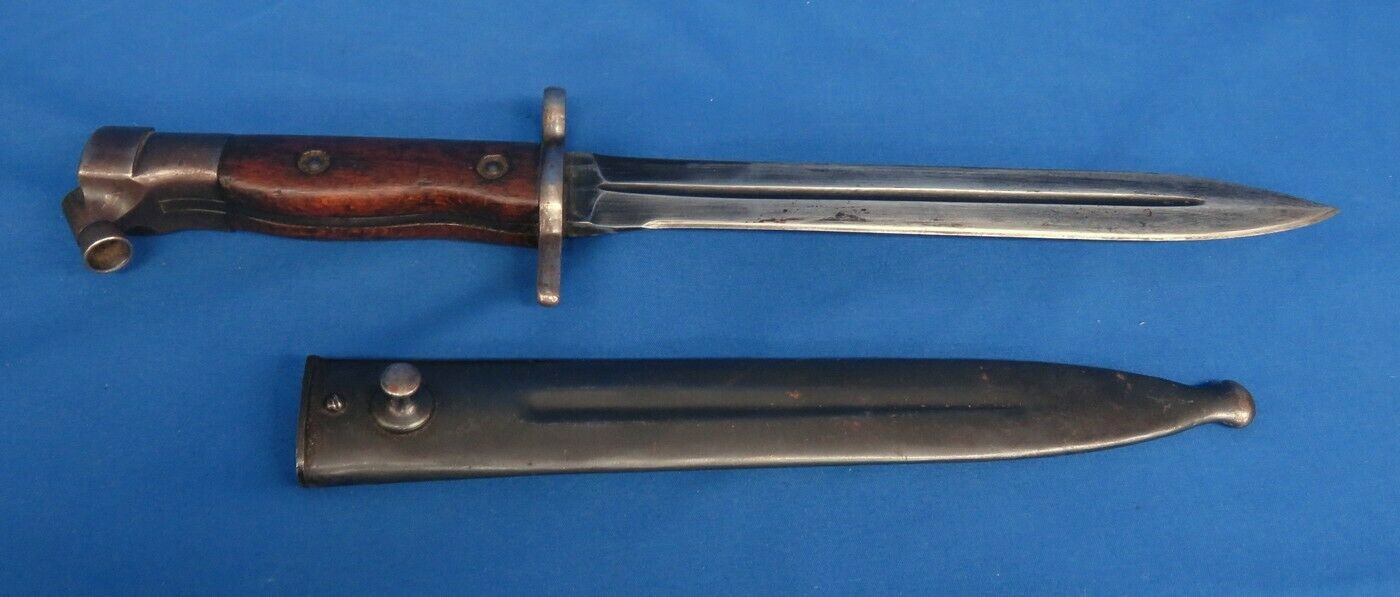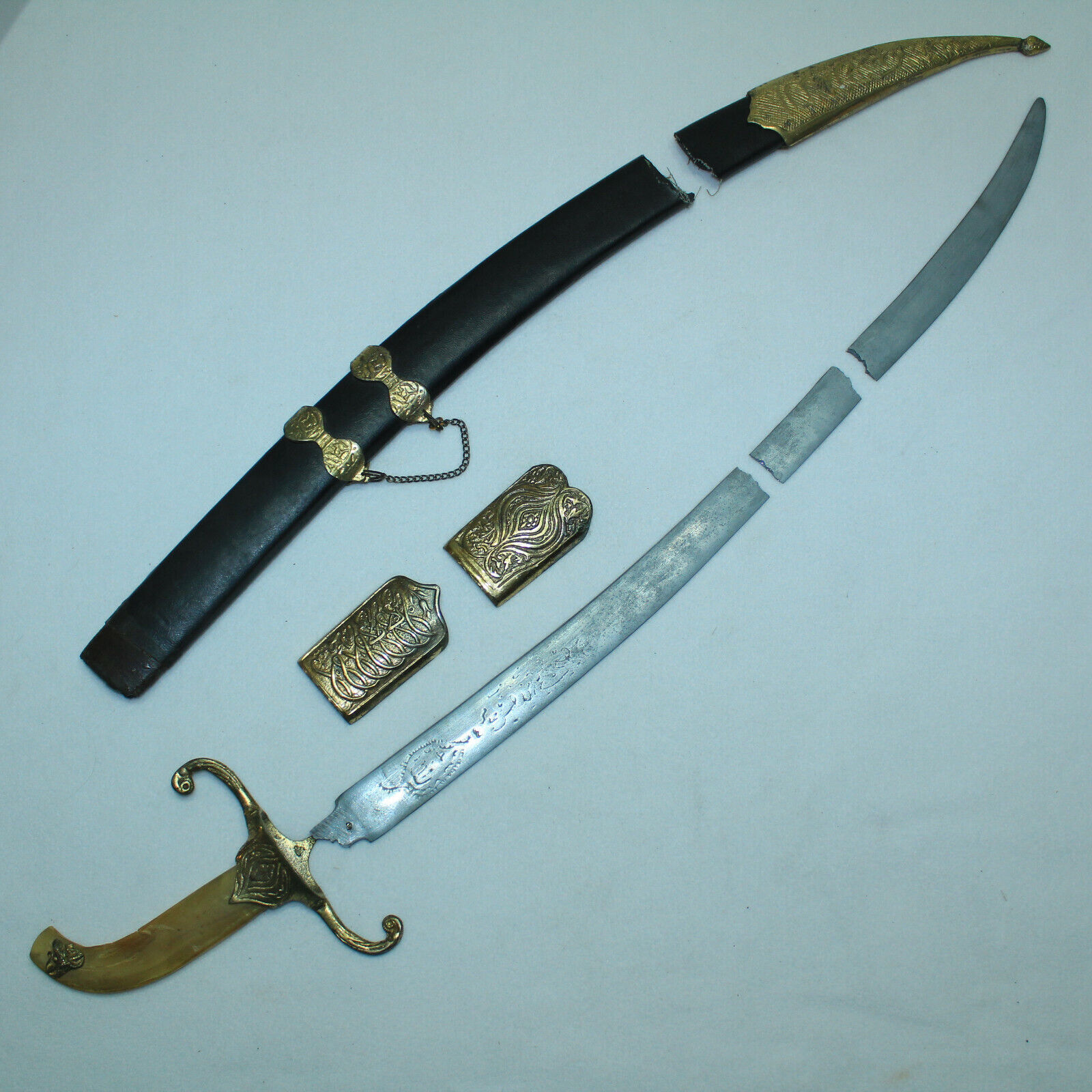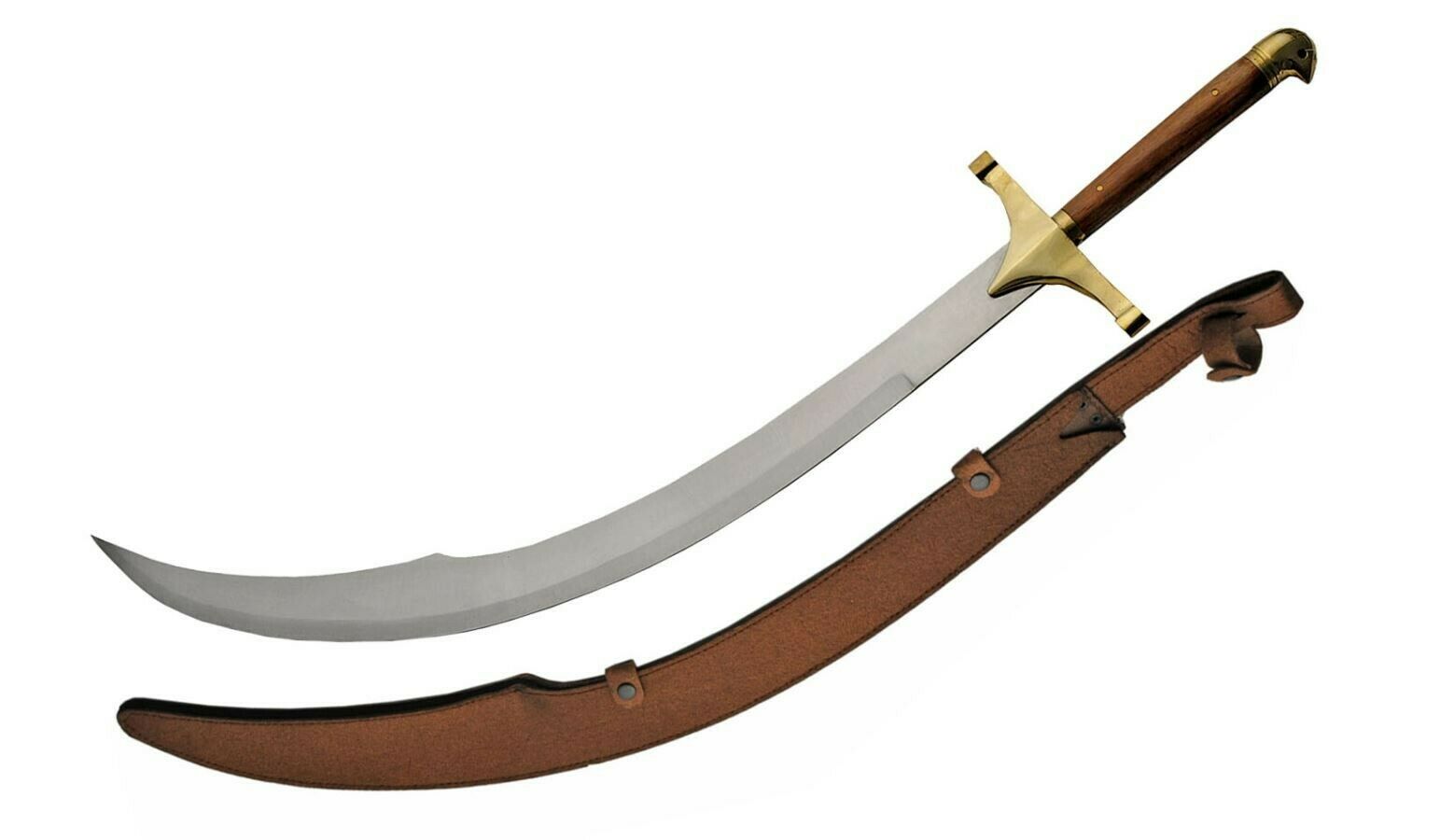-40%
Belly Dance Dancer Baladay Scimitar Shamshir Curved Sword + Sheath Balanced SALE
$ 23.97
- Description
- Size Guide
Description
Belly Dance Curved Sword Scimitar with Leather SheathWell Balanced (Edge Up) Factory Edge (Unsharpened) for Safety
Brass Cross-Guard & Pommel, Wood Grip, Full Push Tang
Well Made, Excellent Reviews
â˘â˘â˘
SALE,
take
10% off
for slight irregularity in wood stain handle and some minor scoring in brass. Nothing particularly noticeable, just doing my due diligence.
Highly recommended by dancers (See Raks al Sayf: Sword Dancing) and nicely balanced for dancing. It has a factory edge for realism but is unsharpened for it's intended purpose of dancing, display, cosplay or stage combat.
Thanks
Ilona Marianna, Polish dancer and performance artist in first photo, for permission to use your beautiful photo with scimitar you purchased!
Some
minor
flaws in finish possible, consistent with being handmade in Pakistan, but crafted with care.
The scimitar is a prop that belly dancers often use to demonstrate their flexibility and sense of balance, as well as a beautiful costume piece that mesmerizes the audience. Itâs balanced on many parts of the body but most commonly on top of the head.
See youtube video
â
How to Use a Sword | Belly Dancing
â
by
Irina Akulenko
SPECIFICATIONS
:
Overall Length- 34â
Handle Length - 7â (wood handle full push tang)
Blade Length - 25â
Blade Type - Factory Edge - Unsharpened
Cross-Guard - 6â Brass
Pommel - Brass Bird of Prey Head, a Hawk?
Sheath - Unfinished Leather w/ 3 snap closures
COLLECTORS:
The curved sword or scimitar was widespread throughout the Middle East
from at least the Ottoman period,
with early examples dating to the
9th century.
Mongols, Rajputs and Sikhs
used scimitars in warfare, among many other peoples.
Numerous Islamic traditions adopted scimitars, as attested by their symbolic occurrence in art and the Coat of Arms of Saudi Arabia, where it was also used by executioners for beheading.
I'm a collector and re-enactor, active in local groups and Renaissance Fair so I get lots of feedback. I sell what I own and can recommend! See my Seller Ratings and buy with confidence! Plus I ship fast.
